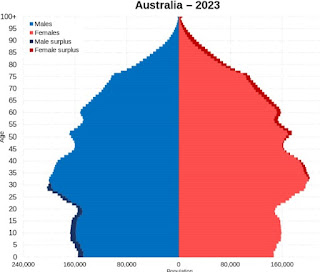A Tale of Two Coconuts
Gross Domestic Product is useful for comparing economic output over the years, but it can very easily be manipulated to give the impression of economic growth when in reality there wasnt any.
The value of the Islandia Dollar is ultimately determined by the number of coconuts produced. If the coconut is transferred back and forth between Phil and Tony, GDP can rise by a few hundred percent - but it still doesnt change the fact that only one coconut was produced.
Now a Mexian beer themed virus hit the shores of Islandia. In a panic, there were lockdowns and the economy was disrupted. No coconuts this year. To maintain spending, Phil increases the money supply by encouraging people to take loans - because money is spawned into existance when people take loans (this is the objective reality of the fractional reserve system used in modern banking). Ultimately the money supply grew by 30%.
Over the coming years, the virus is but a distant memory, and coconut production has resumed. Tony says "Yay! The GDP grew by 10% this year", after noticing that the coconut was sold once for $11, instead of $10 before the Mexican Beer Virus.
The economy still ultimately makes one coconut a year - but because Phil expanded the money supply, there is now 1.30 times the number of dollars per coconut. There are 13 dollars in circulation.
Yup. Money just became 30% more worthless because of money printing. This, people, is the true definition of INFLATION. It is the devaluation of every dollar in existance. By definition, if you print more money you are devaluing money itself. Think of it as a tax on every dollar in your savings account, because that's what it really is.
Why Australia is a nice place to live.
In a very literal sense - Australia makes stuff, and has a small population relative to the amount of stuff it makes. Iron ore, natural gas, agricultural produce, and services that are exported (education / software / consulting) for foreign currency. Australia has a lot of coconuts for relatively few people. That's the bottom line.
Despite all this, if the money supply goes up by 30% - it's guaranteed that it will be felt by everyone, as things will become 30% more expensive by definition. This is true inflation.
Ezradamus predicts the future
Link to March 2022 article: Australian Inflation Will Be 20pc between 2020 and 2022
Petrol used to cost around AUD $1.20 per litre before the pandemic. It now costs about $1.89. While it is true that there was genuinely a hydrocarbon shortage due to supply disruptions in early 2023 (war in Ukraine etc), those disruptions are now over, and prices have returned to pre-pandemic levels.
Keep in mind the American Dollar also devalued due to money printing in the past three years by around 20% (Look up USD M1/2/3 money supply statistics). Around $60USD per barrel 2020 to $80USD per barrel now.
Oil prices ($USD/barrel)
The Reserve Bank Does The Right Thing
There is another country that starts with the letter "A" - Argentina - that has experienced hyperinflation despite making lots of coconuts. They were the number 1 beef exporter in the world for decades and was a one point predicted to outpace Singapore and Europe in growth. Then their central bank (with lots of corruption and political influence) devalued their currency to peanuts and caused hyperinflation - now they are stuck in a debt trap and are financial pariahs on the world stage.
RBA - M1 money supply
Kudos to Reserve Bank of Australia govenor Phillip Lowe for doing the right thing.
Interest rates are now in the 4pc range. Money supply is now starting to shrink. Realistically, it will need to shrink further - or else, inflation will 'stick'. This will no doubt be a politically unpopular move, and I can already see lots of political pressure to stop the interest rate rises.
Absolute Legend.
In my opinion, interest rates should be closer to 7-8 percent (the decades long average). There will be blood - people will default. Anthony Albanese (The current elected PM) will no doubt face a lot of pressure to lower interest rates from stressed mortgage holders - and even homeowners keen on seeing their property prices keep on rising. But in return, retirees with savings will have the value of their savings protected, and young people will find housing much more affordable. This is much more sustainable in the long term. The problem is that 'long term' = decades, and election cycles are much shorter than that. I am writing this to improve general knowledge on this topic for this reason. IMHO voters are too shortsighted to see the bigger picture - everyone wants handouts and tax cuts. But monetary policy is ultimately what is making your payslip more worthless every year - as it's a tax on money itself.
My message to people who own property keen on seeing prices rise - The value of the house you stay in is meaningless unless you are planning to sell. If your home doubles in price, but the value of the money it is being sold for halves in value, you have not turned a profit - only hedged against inflation. The property price increases (much more than inflation) over the past two decades was from genuine population and economic growth - something that may not necessarily repeat in the coming decades as birth rates fall: You will be proverbially shafted by a demographic buttplug. Ask all the Tokyo homeowners that were once told Tokyo house prices will never fall. A single detached home only costs USD$300k in Tokyo (LINK: Life From Where Im From (Youtube)). Also note Australian coconut production is pretty stable after the mining growth spurt.
Thoughts / Comments
I would like to invite comments from readers on this topic.
- Has your household spending risen by 20% in the last 3 years?
- Will a rise of 3-4% to interest rates cause mortgage stress?




No comments:
Post a Comment